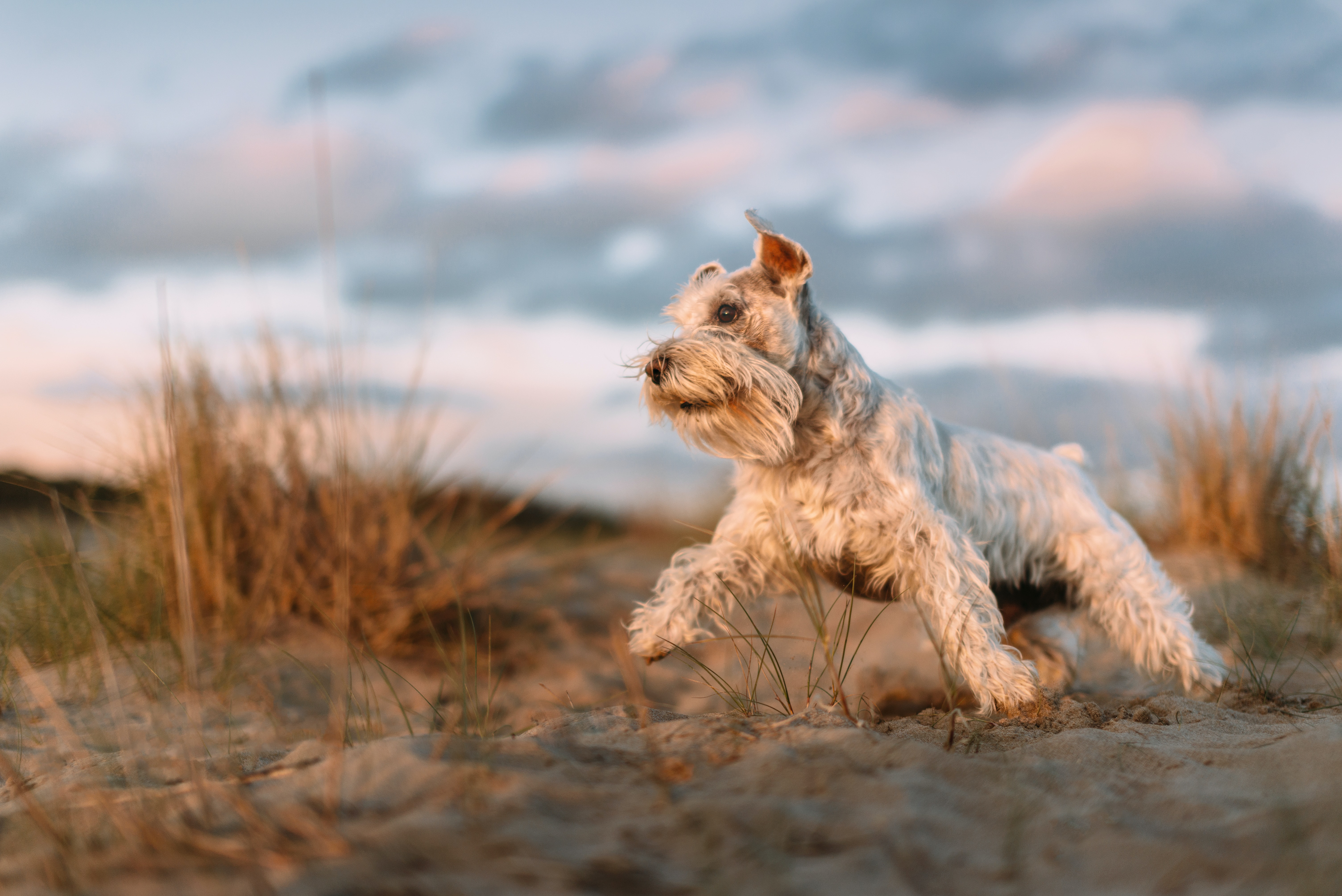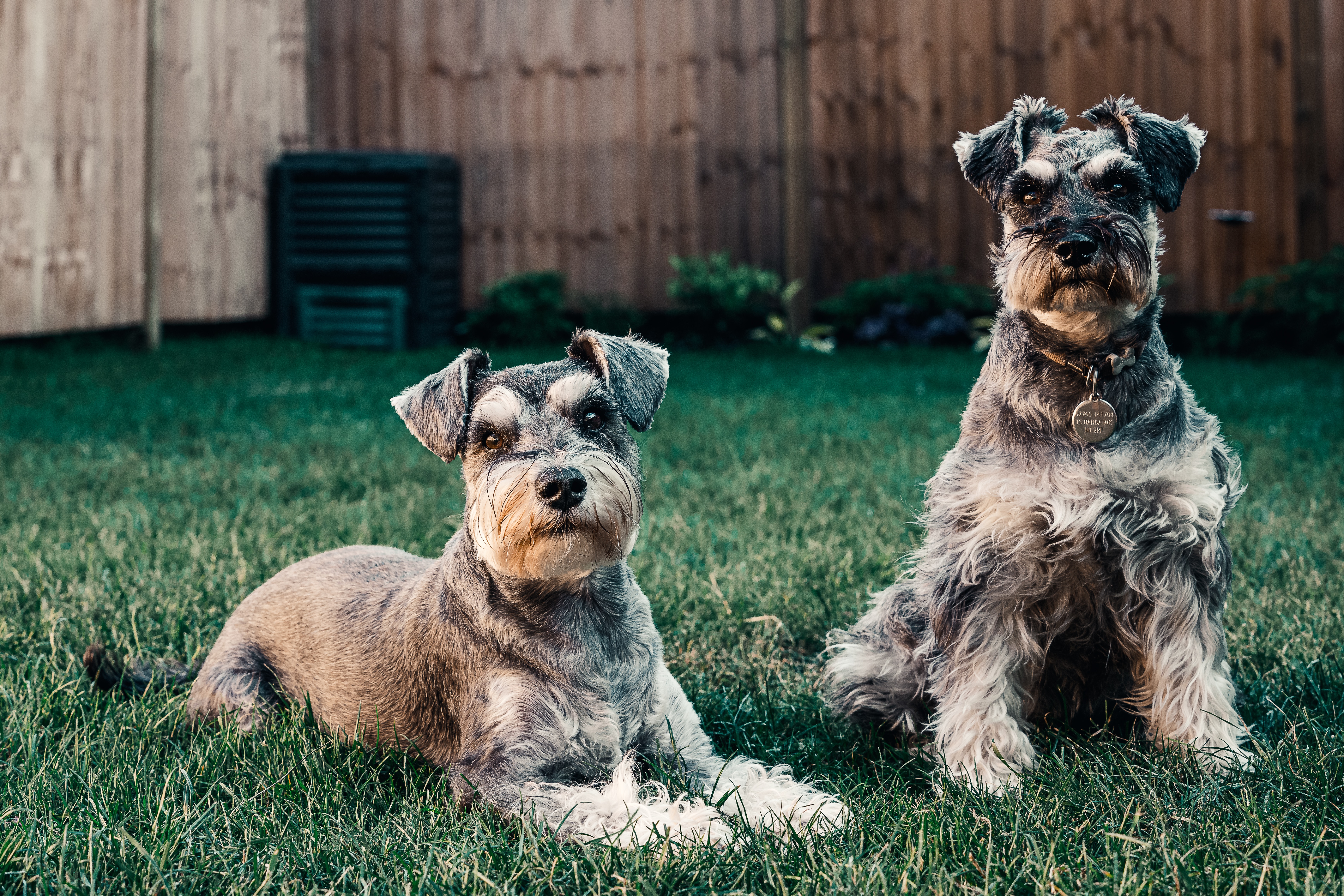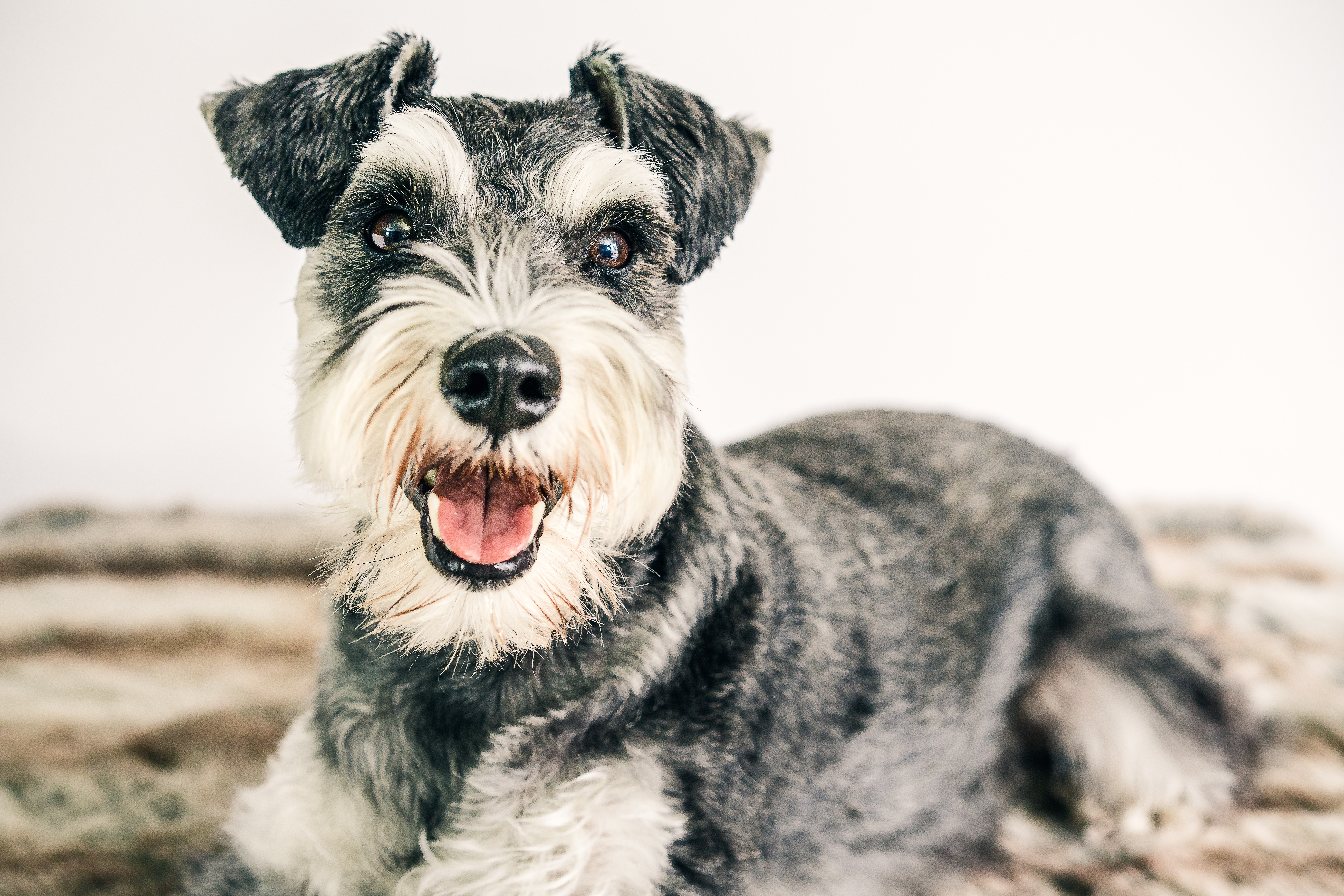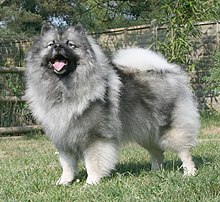
The Miniature Schnauzer, distinguished by its characteristic beard, bushy eyebrows, and spirited disposition, is the smallest of the three Schnauzer breeds. Originating from Germany, this compact dog was historically utilized as a ratter and farm dog, skilled in keeping vermin at bay. Today, the Miniature Schnauzer is celebrated not just for its versatility but also for its lively, friendly nature and strong bond with family members. With a wiry coat that comes in several colors and an alert, intelligent demeanor, this breed thrives both as a city companion and a suburban favorite, known for its vocal alertness and unwavering loyalty to its household.
The Miniature Schnauzer is a member of the AKC Terrier Group.
Breed Characteristics
| Dog Breed | Miniature Schnauzer |
| Breed Popularity (AKC) | 17 |
| Country of Origin | Germany |
| Personality | Intelligent, energetic, playful, good-natured |
| Life Expectancy | 12-15 yrs |
| Height | 12-14 in |
| Weight | 11-20 lbs |
| Color | Black, Salt & Pepper, White |
| Coat | Harsh and wiry when hand stripped, soft and curly when clipped |
| Shedding | Infrequent |
| Grooming | Specialty/Professional |
| Health Problems | Dental problems, pancreatitis, diabetes |
| Trainability | Eager to Please |
| Exercise Needs | Regular Exercise |
Miniature Schnauzer History
The Miniature Schnauzer originated in Germany in the late 19th century. This breed is the result of crossing the original Standard Schnauzer with breeds like the Poodle and Affenpinscher. Initially, they were used for ratting and guarding properties, but their lively character and distinct appearance soon made them popular companions.
Temperament
Miniature Schnauzers are lively and spirited dogs. Their intelligence and alert nature make them excellent watchdogs, displaying a high barking tendency when they notice something unusual. They are friendly and generally get along well with children and other pets, especially when socialized early. Their energy level is moderate, and they enjoy play sessions with their families. They can be a bit stubborn at times, but their trainability is generally high. They are known for their distinct beard and eyebrows and require regular grooming to maintain their appearance.
Remember, while breed traits provide a general idea, individual dogs can have personalities that differ from the breed standard. Always spend time getting to know the dog and ensure their needs and temperament align with your lifestyle.
Grooming Requirements
Miniature Schnauzers have a wiry double coat that requires regular brushing to prevent matting. Many owners opt to have them professionally groomed to maintain their distinctive appearance. Bathing should be done using a quality dog shampoo before any grooming or trimming. Regular nail trimming and ear checks should be part of their grooming routine.
Miniature Schnauzer Health
Miniature Schnauzers, living 12-15 years, should have consistent vaccinations. They are known to have a higher risk of diabetes compared to other breeds. Stone formation in the urinary system is also a common concern. They benefit from a balanced diet, and treats should be monitored, especially those high in oxalates.
Exercise Needs
Miniature Schnauzers, with their lively personalities, benefit from daily walks and playtime. Engaging them in games like fetch or introducing them to agility courses can be an exciting way to bond. Trips to the dog park can provide both exercise and socialization opportunities for this spirited breed.
Training
Miniature Schnauzers, with their spirited nature, benefit from early obedience training. Potty training, backed by clear commands, ensures they adapt to household norms. Crate training serves as a refuge, especially when they seek some quiet time. Addressing behavior problems at the onset ensures they remain the charming companions they are known to be. Regular socialization ensures they are amicable around other pets and children.
Miniature Schnauzer Pictures



Related Dog Breeds
More Dog Resources
Are you thinking about getting a puppy? Make sure to check out our list of important questions to ask before you adopt a puppy.
We also have many resources to help, from naming your puppy to socialization resources and training tips.
Take me back to the Ultimate Guide to Dog Breeds



